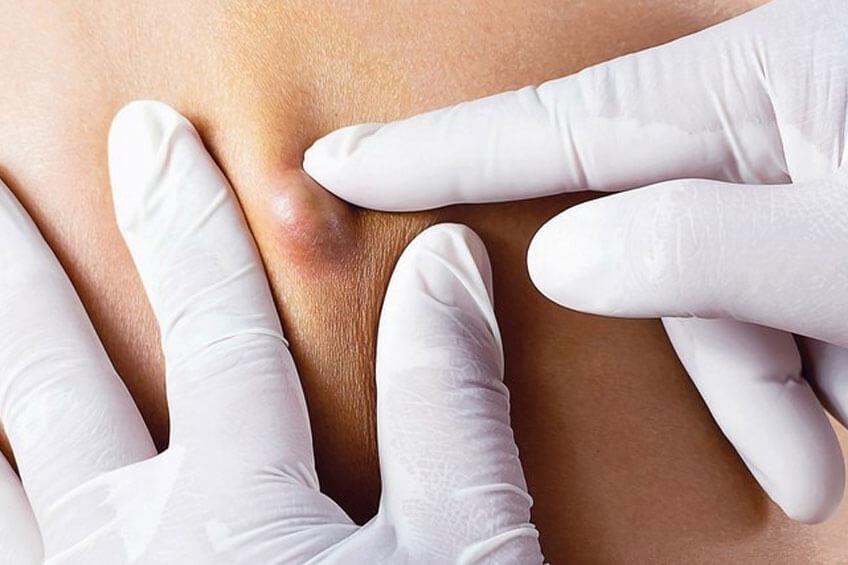Cysts are sacs of fluid that can form on the body, and are often noticeable if they form in certain places. Most people tend to see cysts as red flags for cancer and for other health problems and seek to have them removed as quickly as possible. However, are cysts dangerous and should they be removed?
This article is going to attempt to break down cysts and let you know what they are and how worried you should be about them, as well as share if they should be removed or not.
Table of Contents
Most Cysts Are Not Dangerous
While most people adore having perfectly smooth skin and see it as a mark of health and beauty, some people learn to live with the various bumps and marks that make up their skin. Most cysts are classified as benign cysts, which means they form on your skin and just hang out without causing any harm.
They aren’t cancerous or malignant, and they won’t cause any danger to you. However, that doesn’t mean that they can’t be removed.
You Do Need To Have Cysts On Your Skin Checked Out
Now, while most of the cysts that you will have on your body are benign and won’t cause you any harm, you do need to know that there are some red flags to look for. These red flags will determine if a cyst is cancerous. You should go to get any suspicious cysts checked out, especially if you see rapid growth, redness, inflammation, and infections as well. Additionally, if your cyst does not have a symmetrical shape, and it is asymmetric, then you need to have it inspected. Asymmetric cysts are at a much higher risk of being cancerous.
How Do Cysts Form?
Cysts can form for various reasons, depending on their type. For example, acne cysts form whenever pores are blocked and bacteria is introduced. Cysts can also form as a result of an injury, or even due to genetics. There’s no way to prevent cysts as they can form at any time for any reason, and all you can do is keep an eye on your cysts and potentially go see your dermatologist if you want them removed.
How Are Cysts Removed?
Cyst removal is a fairly common procedure for most dermatologists and surgeons, and you have a lot of options to either remove the cyst or treat it entirely. Some of these are home remedies, while others require surgery. Let’s look at both!
If your cyst developed because of an infection, parasites, or other causes that aren’t related to normal body function, then you can use antibiotics and steroids to treat them. These can be taken topically, orally, or via direct injection, and the treatment plan will depend on the type of cyst that you are trying to treat.
Prescription creams are also used to treat recurring cysts, and you simply place the cream on the cyst until it goes away. Sometimes the creams can even be permanent solutions for the treatment of your cyst.
Now, for cysts that are dangerous or cysts that are resisting traditional treatments, you will need to use surgical methods to remove them permanently.
The Surgical Ways To Remove A Cyst
A cyst is often filled with air or liquid, and sometimes they just need to be popped. Draining pierces the cysts after the area has been dulled with topical numbing cream to prevent any discomfort on your end. Still, there is a risk of the cyst returning because the walls of the cyst are still there and it can reform.
The best option to remove a malignant cyst entirely is to use surgical removal, because cancerous cysts need to be fully removed in order to prevent the further spread of the cancer inside of the body. Once the patient is given an anesthetic, then the cyst is drained with an incision and is then removed entirely, before the wounded area is stitched up and the recovery can begin.
Have Your Cyst Checked Out, But Don’t Worry About It
For the most part, cysts are harmless and don’t need to be removed, but if you notice your cyst doesn’t look or feel quite right, then you should have it checked out by a doctor to see if it is cancerous, then make your decision about whether or not to have it removed whenever you have more information.
Otherwise, you can live with your harmless cyst or get it removed for cosmetic reasons too!

